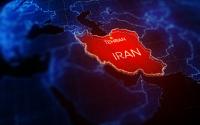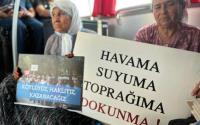As the Abu Ghraib scandal engulfed Washington last week, with the media full of pictures of grinning US military police next to naked Iraqi detainees, Jim Miklaszewski of NBC News called a contact in the Pentagon with a query about the six soldiers facing charges for the abuse. "You mean the six morons who lost the war?" the official said. From this side of the Atlantic the official's response might seem a little blinkered. What about all the questions and doubts that already existed - about the exaggerations and lies which took us into war, about the bungled aftermath of a supremely successful military campaign, and about the cost in money and lives of suppressing a growing insurgency against the supposed liberators of the country? He spoke, however, for many Americans, almost certainly including President George Bush and his Defence Secretary, Donald Rumsfeld.
The obscene antics of Private Lynndie England and her boyfriend (by whom she is now pregnant), Specialist Charles Graner, who appear most often in the photographs, have crystallised half-suppressed doubts in the US about what is going on in Iraq. After a slow start, the unfolding tale of the abuse of Iraqi prisoners has swept everything else off the radar screen in Washington. Gradually the full appalling implications are being grasped by an administration that hitherto has never been concerned for anyone's opinion other than its own. A president already facing a tough re-election fight this autumn now realises he has a potentially career-ending disaster on his hands.
As late as Wednesday, as his handlers pushed him into belated damage control by giving interviews to Arab-language TV networks, Mr Bush still didn't get it. To be sure, he declared his "abhorrence" - but then seemed to lecture his questioners on their failure to understand the special godliness of America, which a few individuals had so heinously betrayed. An apology? No way.
Within 24 hours the White House corrected the blunder. After meeting King Abdullah of Jordan, the President said sorry, not once but twice. By Friday Mr Rumsfeld, if anything even more obdurate and sure of his own infallibility than his President, was expressing contrition in his opening statement to a senate committee. Aware that nothing could be more harmful than a constant stream of further revelations, he took care to warn that there was worse to come, in the form of videos as well as photographs. They are said to include Iraqi guards raping young boys, and American soldiers having sex with a female detainee, "acting inappropriately" with a corpse and beating an Iraqi detainee close to death.
Under questioning, however, the Defence Secretary reverted to his combative and self-confident self, and by yesterday Mr Bush was repeating the message he, Mr Rumsfeld and the anonymous Pentagon official are desperate to get across: what happened at Abu Ghraib, the President said in his weekly radio address, was "the wrongdoing of a few".
There was fresh evidence yesterday, however, that the abuse was systematic. One of the accused soldiers, Specialist Sabrina Harman, told The Washington Post that she was specifically ordered by intelligence interrogators to break down prisoners for interrogation. "They would bring in one to several prisoners at a time already hooded and cuffed," she said by email from Baghdad. "The job of the MP was to keep them awake, make it hell so they would talk."
Prisoners were stripped, searched and made to stand or kneel for hours. "Sometimes they were forced to stand on boxes or hold boxes or to exercise to tire them out," she said. "The person who brought them in would set the standards on whether or not to 'be nice' ... Sleep, food, clothes, mattresses, cigarettes were all privileges and were granted with information received."
Although the relative openness of the US contrasts starkly with British secretiveness over abuses by soldiers, Mr Rumsfeld's congressional inquisitors made little headway when it came to establishing how high responsibility for the events at Abu Ghraib went. Nor did they tease out the detail of who in the White House knew what about the affair, let alone when they knew it. The insistence of the Defence Secretary and other senior figures that the military moved swiftly as soon as a soldier at Abu Ghraib blew the whistle has gone largely unchallenged.
What is clear, however, is that the US authorities simply did not want to know. Complaints from dozens, even hundreds of Iraqi detainees about their treatment were brushed aside. Detailed reports submitted to the American and British governments by human rights organisations, including the Red Cross and Amnesty, some dating back as much as a year, were ignored. Even previous investigations by the military were not followed up, or simply swept under the carpet.
A copy of the International Red Cross report to the US on prison conditions in Iraq, made in February, was obtained by The Wall Street Journal last week. Not only does it detail abuses including keeping prisoners naked in cells and in total darkness, it says prisoners were beaten, in one case leading to death, and that soldiers fired on unarmed prisoners from watchtowers, killing some of them.
The report, which concludes there have been serious violations of the Geneva Conventions, says that the ill-treatment went beyond exceptional cases and was "widely tolerated", especially when it came to extracting information from Iraqis detained in connection with suspected security offences. "We were dealing here with a broad pattern, not individual acts. There was a pattern and a system," said the Red Cross director, Pierre Krähenbühl, directly contradicting Mr Rumsfeld's assertion that the abuses were an "exceptional situation, not a pattern or practice".
The US authorities did not take action until they received a formal complaint from a serving soldier, and a senior officer, Major General Antonio Taguba, was called in to investigate. Last week it emerged that neither Mr Rumsfeld nor the chairman of the Joint Chiefs of Staff, General Richard Myers, had read all of the devastating Taguba report until they found out that it had been leaked to Seymour Hersh, the legendary investigative journalist who now writes for The New Yorker. Even then the first response of General Myers was to seek to persuade the CBS network not to show the photographs which they had obtained, on the grounds that they would inflame the situation in Iraq further.
The pictures are out; however, worse is to come, and the moral authority claimed for the invasion of Iraq by neo- conservatives such as Mr Rumsfeld's deputy, Paul Wolfowitz, has been utterly dispelled. Far from sowing the seeds of a democratic revolution in the Middle East, America is reaping a whirlwind of fury in the region. The blackest week of the Bush presidency has also destroyed another illusion: that his administration is the quietly purring Cadillac among national security teams. Its carefully cultivated aura of harmony has been blown to the four winds. The old "White House in disarray" headlines which flourished under Bush the elder and his successor, Bill Clinton, are being dusted off.
First, Colin Powell sent forth his closest aides - his deputy Richard Armitage and his chief of staff Larry Wilkerson - to inform GQ magazine of the Secretary of State's frustration with administration policies, and his exhaustion at the endless battles with the Pentagon and his friend turned foe, Vice-President Dick Cheney. Within hours of this latest mini-rebellion by the reluctant warrior Powell, there were orchestrated leaks of Mr Bush's dressing-down of Mr Rumsfeld, held guilty of omitting to keep a famously uncurious President abreast of the unfolding scandal at Abu Ghraib. The vaunted unity of the Bush team is in tatters.
How has it reached this point? The answer is that the trail to Abu Ghraib runs through the detention camps of Bagram in Afghanistan and Guantanamo Bay in Cuba to the attacks of 11 September 2001. As the former head of the CIA's counter-terrorism centre, Cofer Black, told a congressional committee a year afterwards, "This is a highly classified area, but I have to say that all you need to know: there was a before 9/11, and there was an after 9/11. After 9/11 the gloves came off."
The message, as Mr Black went on to explain, is that there were "no limits" in an "aggressive, relentless, worldwide pursuit of any terrorist who threatens us". The notion that those whom America deems its enemies have no rights has been endlessly reinforced, not least in words by Mr Rumsfeld, and in deed.
Hundreds of "enemy combatants" have been held in a legal vacuum at Guantanamo Bay and at Bagram in Afghanistan, among facilities that are known, for more than two years. Other suspects have been "rendered" to less fastidious jurisdictions such as Egypt and Morocco, where they can be tortured by the local security services. America has refused to submit to any international legal scrutiny or allow its nationals to be tried by the International Criminal Court.
One fact elicited by Friday's congressional hearings was that of 25 deaths in US military custody, two - one in Iraq, one in Afghanistan - have been ruled "criminal homicide". A soldier was dishonourably discharged in the Iraq case, but no further actions was taken, while the civilian interrogator held responsible in Afghanistan remains at his post, contributing to an atmosphere of impunity.
And when the new chief of prisons in Iraq is Major General Geoffrey Miller, a former Guantanamo Bay commander who has ruled that techniques such as sleep deprivation and "stress positions" may be used to extract information, it is hardly surprising that military intelligence officers, CIA agents and civilian contract interrogators felt they had official approval for "softening up" methods. Nor that their attitude spread to the military police who were supposed to keep prisoners from harm.
The most startling feature of General Miller's recent comments was his pledge that he had put a stop to the hooding of prisoners in Iraq. Few members of the public who saw the photographs of prisoners hooded and shackled throughout the flight from Afghanistan to Guantanamo Bay realised the practice was illegal. Judging by the latest pictures, this was news to the staff at Abu Ghraib.
The harsh light now being shone into the dark corners of the "war on terrorism" has caught the White House in its beam, but Mr Rumsfeld is robustly refusing to resign. This being an election year, he may yet get away with it, by shunting the matter off into in-house investigations and an independent commission. For Mr Bush to sack the prime architect of the disastrous occupation of Iraq would be acknowledgement that the abuse was not an isolated aberration, but evidence of a systemic failure, calling into question the very wisdom of the invasion of Iraq.
Even when mistakes do not matter, this President does not admit to them. To concede that the Iraq war was wrong, after the fiascos of the missing WMD and Saddam Hussein's non-existent ties with al-Qa'ida, would be to tear away the very reason of his presidency.
So, most likely, he will persevere with Mr Rumsfeld and the various other hardliners and neo-conservatives who fashioned his Mesopotamian adventure - braving a new tidal wave of revulsion in the Arab world and hoping that the next sensation in Washington will consign this one to oblivion.
It will not be easy. Even Karl Rove, ruthless political operator and the President's most influential election-season adviser at the White House, has told colleagues that it will be decades before the US recovers from the damage. The trick now will be to separate enduring disaster from the short-run requirements of securing a second term for his boss.
Iraq and the recent unflattering 9/11 hearings notwithstanding, Mr Rove still believes that the President's strongest suit remains his perceived competence in protecting the US against terrorism, reinforced by the recent upturn in the economy. If the surge in job creation of the past two months continues into the summer, Mr Bush's chances of re-election will brighten - whatever happens in Iraq.






